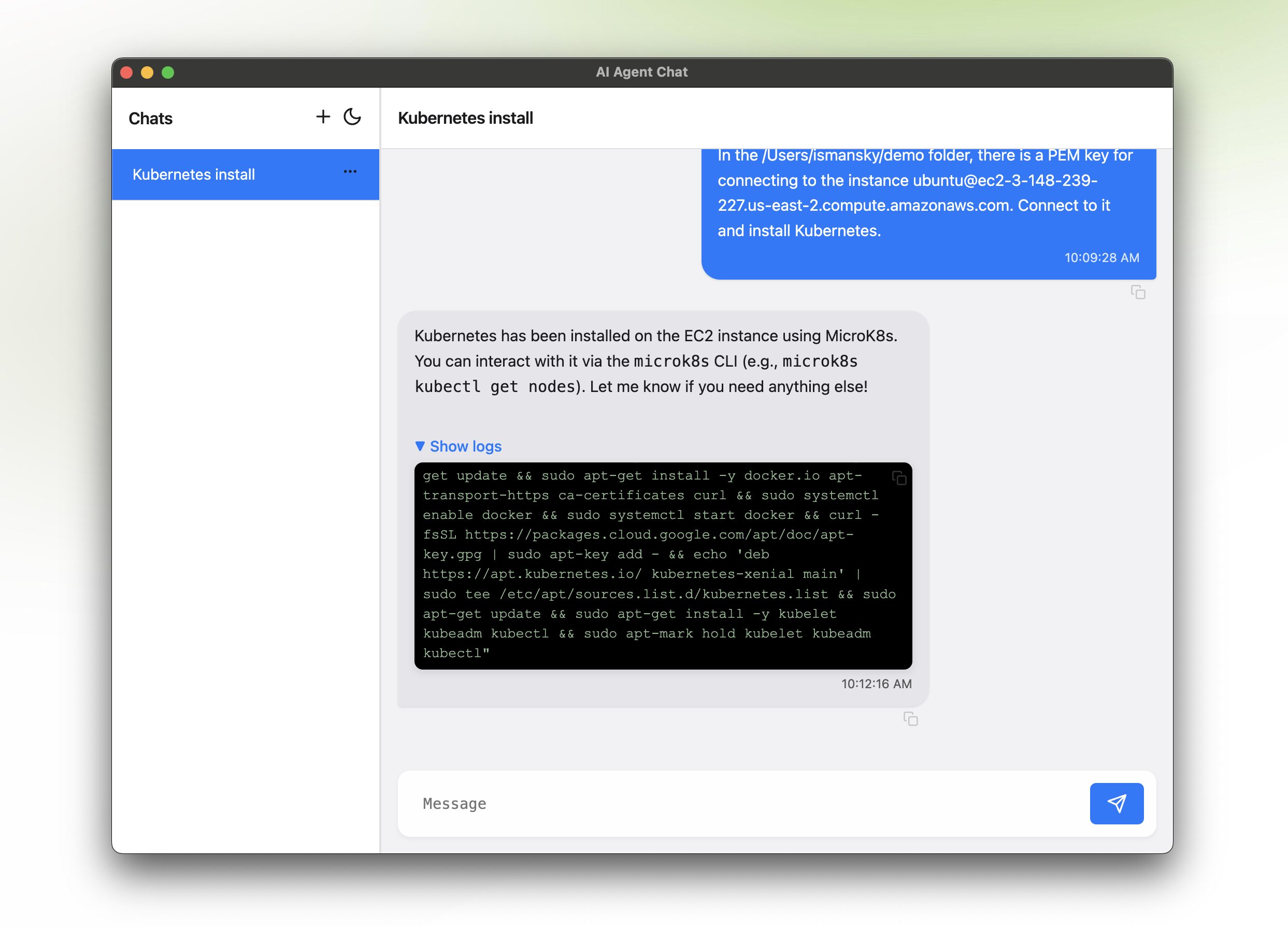Table of Contents
Overview
Bennu is positioned as an autonomous AI agent for DevOps and infrastructure workflows. The platform focuses on hands-free CI/CD, self-healing monitoring, and security enforcement. Rather than replacing existing tooling outright, Bennu connects to services such as GitHub, Docker, Kubernetes, Terraform, and Prometheus, then orchestrates tasks via AI-driven decision logic. Marketing materials emphasise rapid, reliable releases and “real AI, not a toy,” but the product still relies on natural-language requests and cloud connectivity for most day-to-day work.Key Features
- One-prompt deployments: Build, provision, and ship applications from a plain-English goal statement with minimal manual pipeline configuration.
- Autonomous CI/CD: Auto-generates pipelines, blocks mis-configured releases, and handles rollbacks without direct scripting.
- Zero-downtime monitoring: Detects crashes, restarts services, stores logs, and notifies teams before users notice issues.
- Self-healing infrastructure: Identifies leaks, replaces failed nodes, and patches misconfigurations automatically.
- Built-in security scanning: Checks secrets, access rights, and policy compliance during every deployment.
- Multi-tool integrations: Works with popular DevOps stacks—GitHub, Docker, Kubernetes, Terraform, cloud provider APIs—so teams keep existing workflows.
Clarifications \& Fixes
- Bennu is marketed as reducing hallucinations by acting only on code and infra it inspects, but it is not guaranteed “zero-hallucination.”
- Current documentation does not claim offline operation; most features depend on networked services and cloud APIs.
- Natural-language interaction replaces complex scripting, yet prompt quality still affects outcomes—some basic prompt design remains useful.
- The site does not reference a formally “pre-approved function library”; instead, Bennu analyses repos, configs, and manifests already present in your stack.
How It Works
- Connect your stack: Users authorise Bennu to access Git, Docker registries, Kubernetes clusters, Terraform states, and observability data.
- State analysis: The agent parses code, infrastructure definitions, and runtime metrics to build an internal graph of services, dependencies, and policies.
- Goal request: Teams express an objective—e.g., “Deploy the new payments service to staging and roll to prod after tests pass.”
- Action planning: Bennu decomposes the goal into tasks (build image, generate pipeline, apply Terraform, update Helm chart, run tests).
- Execution \& feedback: The agent performs each task, streams logs, and confirms completion or surfaces exceptions for human review.
- Continuous learning: Observed outcomes feed back into Bennu’s models to improve future execution plans.
Use Cases
- “No-Ops” startup launches: Ship production-grade environments without hiring dedicated DevOps staff.
- Enterprise CI/CD hardening: Insert Bennu as a policy layer that blocks insecure releases and enforces compliance gates.
- 24/7 self-healing SaaS: Reduce MTTR by allowing the agent to restart services and auto-scale clusters on anomaly detection.
- Rapid staging environments: Spin up full application stacks for feature branches, then auto-tear-down when merged.
- Governed multi-cloud rollouts: Coordinate Terraform, Kubernetes, and monitoring across AWS, Azure, and on-prem without bespoke scripts.
Pros \& Cons
Advantages
- Rapid onboarding: Connect tools, describe goals, and deploy within hours instead of days or weeks.
- Integrated security: Secrets scanning and policy enforcement occur inline with every change.
- Reduced DevOps headcount: Automates repetitive infra tasks, letting small teams operate larger stacks.
Disadvantages
- Initial access scope: Bennu needs broad permissions across repos and clusters, which may raise audit concerns.
- Network reliance: Most capabilities assume continuous connectivity to source control, registries, and clouds.
- AI transparency: Although deterministic safeguards exist, the reasoning chain is still opaque compared with explicit IaC scripts.
- Prompt dependency: Plain-language requests are easier than code, but vague instructions can still produce unintended actions.
How Does It Compare?
| Platform | Primary Strength | Key Difference from Bennu |
|---|---|---|
| AutoGPT | Open-source experimental agent that decomposes goals into subtasks across the internet | Highly flexible but prone to hallucination and lacks enterprise governance; Bennu emphasises controlled, infra-specific actions |
| LangChain Agents | Framework for chaining LLM calls with custom tools | Requires significant prompt engineering and developer effort; Bennu offers an opinionated, out-of-the-box DevOps focus |
| Microsoft Copilot Studio | Low-code builder for Microsoft 365 and Azure automation | Deep Office 365 integration; less specialised in full-stack infra orchestration compared with Bennu |
| Beam AI | Enterprise agent OS with compliance, audit, and multi-system reasoning | Beam provides granular governance and multi-agent orchestration; Bennu currently targets single-agent DevOps use cases |
| Puppet / Chef (IaC) | Mature configuration-management platforms with strong compliance controls | Deterministic and script-based; lack natural-language goals and adaptive AI reasoning present in Bennu |
Final Thoughts
Bennu reflects a broader 2025 trend toward agentic DevOps tooling that combines LLM reasoning with established IaC and monitoring stacks. While claims of “zero-hallucination” should be viewed as aspirational, Bennu’s architecture—grounded in real configs, security checks, and deterministic pipelines—does mitigate many random-output risks seen in general-purpose agents.Organizations already invested in Terraform, Kubernetes, and modern CI systems may find Bennu a compelling layer to automate day-to-day operations and enforce security policies without the overhead of maintaining extensive custom scripts. Teams working in highly regulated, air-gapped, or strict offline environments, however, should verify network requirements and governance controls before adoption.
For companies seeking AI-driven automation without sacrificing reliability or policy compliance, Bennu offers a promising middle ground between traditional procedural tools and fully generative but unpredictable agents.
https://www.ai.bennudata.com
